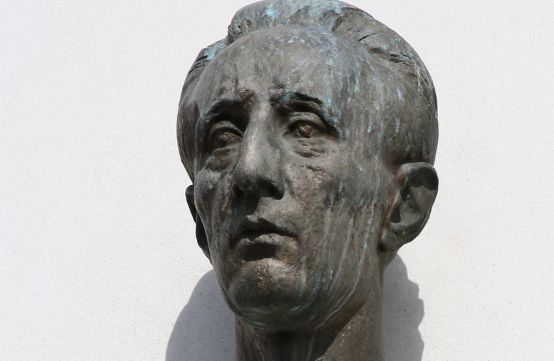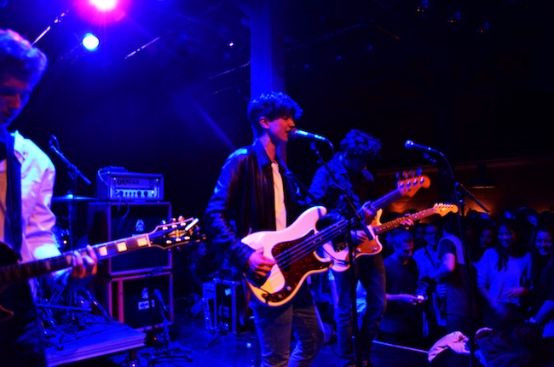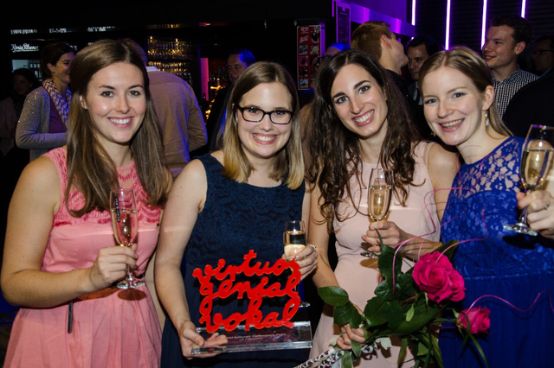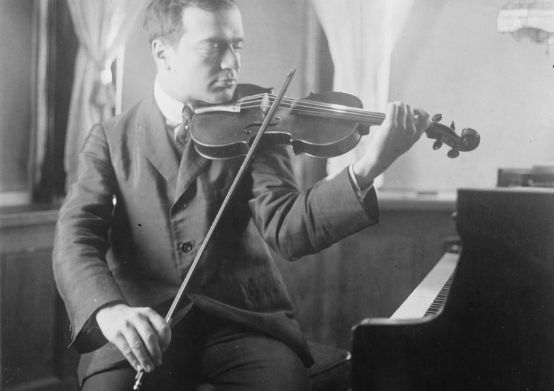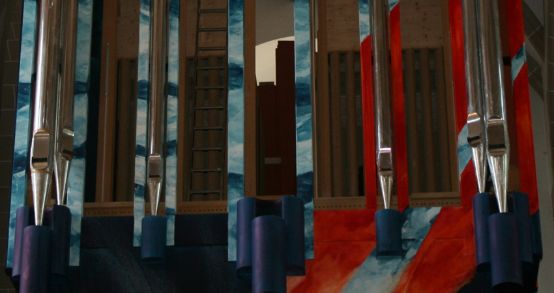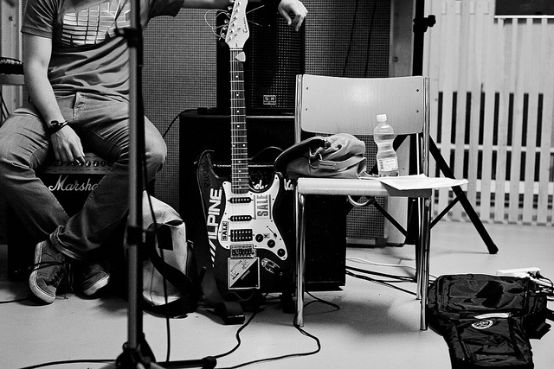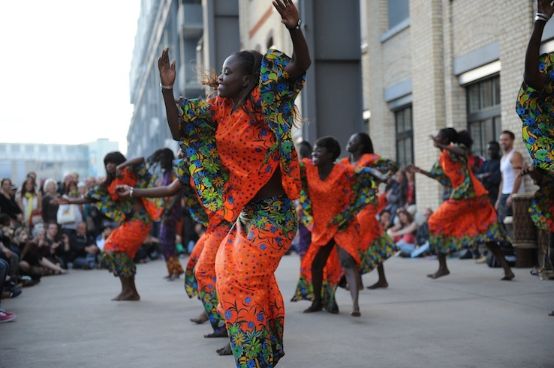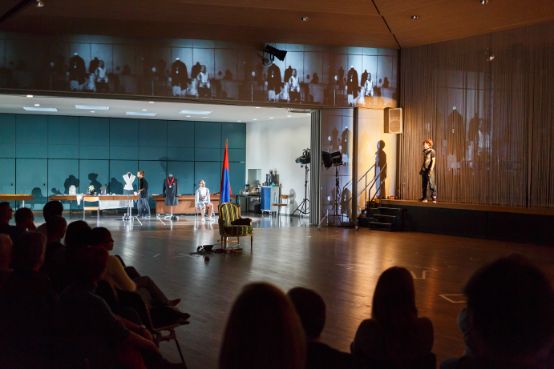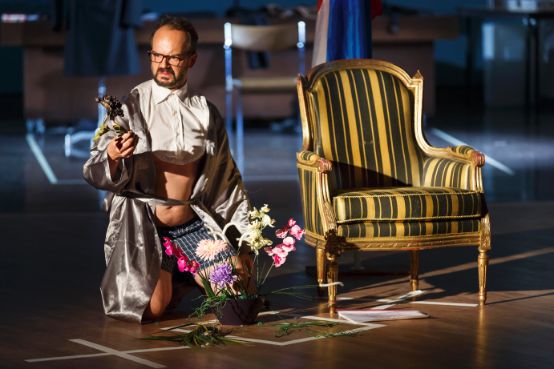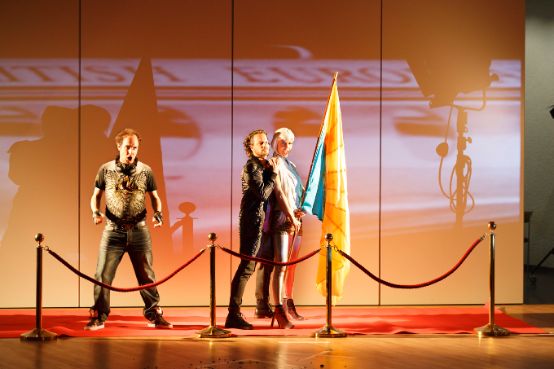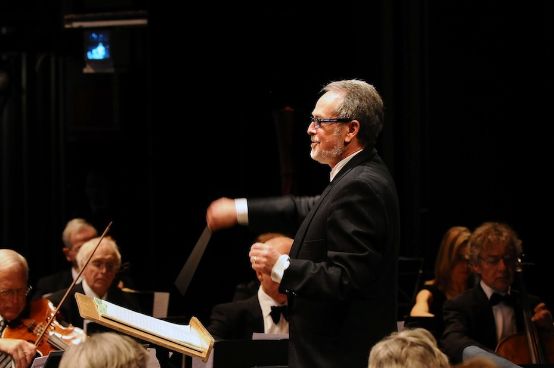Experimental zones at the 28th Days of New Music
Young musicians from the Basel, Bern and Zurich universities left their mark on the Fesival in Weimar.

The Tage Neuer Musik in Weimar is a small but fine festival that bravely flies the flag of new music in the midst of the museum-like comfort of the German capital of classical music. Artistic director Michael von Hintzenstern has been cultivating experimental sound art in Thuringia not only since the fall of the Berlin Wall, which is also reflected in his own ensemble with the programmatic name Ensemble for Intuitive Music, which owes decisive inspiration to his earlier collaboration with Karlheinz Stockhausen.
Sound axes: Switzerland-Germany
This year's edition of the festival once again focused on improvisation, composition and live electronics and was dedicated to "Sound Axes: Switzerland-Germany" from October 28 to 31. The remarkable thing about it: it was mainly young musicians and composers from the Swiss universities who left their mark on the Weimar festival!
The first performance was given by the zone expérimentale Basel ensemble, which is made up of students from the Basel Master's degree program in contemporary music. Hannah Walter (viola), Pedro Pablo Cámara Toldos (saxophone), Carlota Cáceres (percussion) and Haize Lizarazu (piano) performed not only pieces by established composers such as Heinz Holliger, Toshio Hosokawa and Michael Beil, but also more recent works in a colorful opening concert: Jose Pablo Polo staged a new piece in Better out than in (2014) created a percussive noise choreography as "instrumental theater" around the piano; the Basel-based Martin Jaggi knitted a Strata (2010/11), a polyphonic network based on the similarity of the different or the approximation of the instruments' sound colors (through alienation).
The Berlin pianist Frank Gutschmidt had compositional gems from the former GDR and Switzerland in his luggage: filigree-poetic pieces, also involving the piano's interior, which revolved around the poetry of Trakl, Nietzsche and Silvia Plath and left the framework of a conventional "piano recital" far behind. Holliger's Ellis - Three night pieces for piano (1961/62) and Beat Furrer's Voicelessness. The snow has no voice (1986) were juxtaposed with compositions by Christfried Schmidt (born 1932) and Georg Katzer (born 1935). Schmidt's virtuoso Moments musicaux (1976) also made the pianist the reciter of Nietzsche's late work, Katzer's Dialog imaginary No. 2 (1986) entangled Gutschmidt in a dialog with a layer of tape.
From the moment
The interaction of live electronics and instrumental sound is also an essential aspect of the Ensemble for Intuitive Music Weimar (EFIM), which for over 30 years has dedicated itself to music that is "only created in the moment of performance". Under the title Instant Composing the "hosts" Michael von Hintzenstern (piano), Matthias von Hintzenstern (cello), Daniel Hoffmann (trumpet/flugelhorn) and sound director Hans Tutschku (electronics) teamed up with Hannah Walter, Pedro Pablo Cámara Toldos and Françoise Rivalland to explore the border areas of open form and guided improvisation, which provoked very different results between the poles of two-dimensional silence and eruptive outbursts.
-
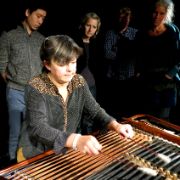
Françoise Rivalland explains cymbalom techniques to the audience. Photo: saTo2015
Françoise Rivalland presented a rousing solo program in which the percussionist, vocal performer and director, who is currently a professor of musical theater at the Bern University of the Arts, pulled out all the stops of her wide-ranging skills. In addition to arrangements for cymbalom of pieces by György Kurtág and John Cage, Rivalland delighted the audience with super-precise, explosive performances of several vocal pieces by George Aperghis, with whom she has a close musical-theatrical collaboration. Also enchanting was a bundle of various Schwitters texts, in which her self-made "Esperou" was used, a mixture of string and metal instrument, which is capable of merging amazingly different timbres (including almost electronic ones); Schwitters also Ursonata has not been heard for a long time in such a nuanced and rhythmically gripping way.
Students at the controls
The inclusion of the Bauhaus University's Studio for Electroacoustic Music (SeaM) under the direction of Robin Minard is a welcome tradition at the festival. This time, the students themselves were also allowed to take to the controls and, together with their "colleagues" from the Institute for Computer Music and Sound Technology (ICST) and the Zurich University of the Arts, presented their latest works. It would be unfair to single out any of the multi-layered pieces by Kenn Mouritzen, Ursula Meyer-König, Carlos Hidalgo (Zurich), Paul Hauptmeier, Martin Recker, Mikhail Yarzhembovskiy and Andreas Vorwerk (Weimar). It was striking that the works from the Swiss studios were mainly based on the transformation of analog sound objects, while the Weimar-based artists took a more "narrative" approach and presented hybrid soundscapes made up of digital sound, voice and field recordings.
-
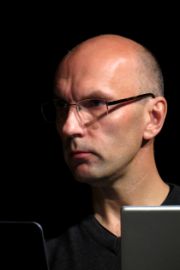
Hans Tutschku. Photo: saTo2015
The activities of the ICST, which aims to bring aspects of scientific and artistic research, digital technology, media art and musical practice into a fruitful dialog, were also the focus of the remarkable final concert. Germán Toro Pérez (current director of the ICST), Carlos Hidalgo, Hans Tutschku, Karin Wetzel and Florian Bogner had conceived pieces that transformed virtuoso solo parts with live electronic real-time processing into multidimensional sound spaces. This took place as particularly impressive, heterogeneously vibrating "spatial music" in Pérez' Signos Oscilantes - confused and wavering (2012) thanks to a great, incredibly accentuated performance by Alejandro López (saxophone). But Hugo Queirós (bass clarinet) also proved himself in the complex lineaments of Hans Tutschku's Interlaced 1 (2014) as a totally present acoustic sculptor of a jagged soundscape in productive exchange with the sound direction. It was precisely the indifferent intermediate areas of sound and noise, electronics and instrumental gestures that opened up spaces for a sound poetry beyond tangible categories.







